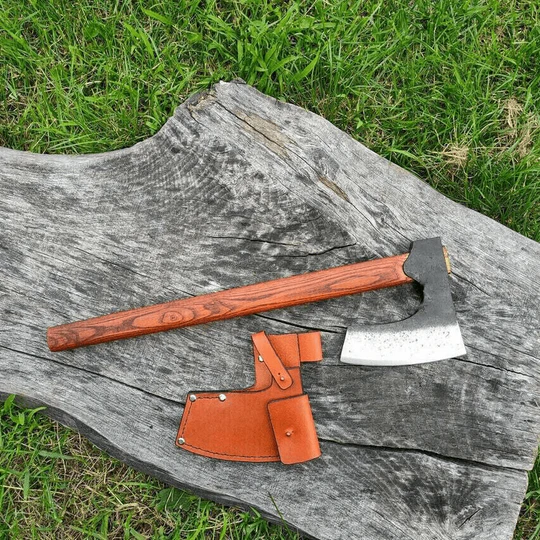The chisel tool is a fundamental instrument across many professions, from woodworking and stone carving to the intricate demands of surgical procedures. Known for its precision, control, and adaptability, the chisel tool has a broad scope of applications. Whether part of a chisel set for versatile use or in specialized forms like gouge chisels and surgical chisel instruments, chisels provide unparalleled functionality in shaping, cutting, and carving. This article explores the vast scope of the chisel tool and how it caters to the unique needs of various fields.
Scope of the Chisel Tool in Woodworking
In woodworking, the chisel tool is essential for shaping, detailing, and assembling wood structures. A complete chisel set is fundamental for carpenters and woodworkers, offering different shapes, sizes, and cutting edges to suit various tasks.
- Joinery and Assembly: Chisels are critical in crafting precise joints, such as mortise and tenon joints, which are foundational for furniture-making. Mortise chisels, for example, create deep, narrow cuts for strong, accurate joins.
- Carving and Decorative Work: Carving chisels and gouge chisels allow woodworkers to add intricate details and textures to wooden objects. With gouge chisels, artisans can achieve rounded shapes and patterns, ideal for decorative woodworking and detailed carvings.
- Trimming and Smoothing: Paring chisels, used for refining wood surfaces and trimming excess material, allow woodworkers to achieve smooth finishes and accurate fits, important for cabinetry and other precise work.
Scope of Chisel Tools in Masonry and Stonework
The durability and cutting power of stone chisels make them essential in stonework and masonry. Used to shape, smooth, and refine hard materials like granite, marble, and concrete, chisels play a vital role in creating architectural details and sculptures.
- Sculpting and Artistic Expression: For artists and sculptors, chisels are a primary tool in transforming raw stone into detailed statues or monuments. Flat chisels, point chisels, and gouge chisels provide flexibility in cutting, shaping, and smoothing, enabling artists to bring their designs to life.
- Architectural Detailing: In masonry, chisels are used to create intricate designs on stone structures, including patterns, textures, and finishes that enhance the aesthetic appeal of buildings. These tools allow for precision and detailed work on materials that are typically challenging to shape.
Metalworking and the Scope of Cold Chisels
In metalworking, chisels—specifically cold chisels—are crafted to cut and shape metal materials. Made from hardened steel, these chisels withstand the force necessary to work with metals, which has applications in industries like automotive repair, metal fabrication, and jewelry making.
- Cutting and Trimming Metal: Cold chisels are commonly used to cut bolts, remove excess material, and trim metal parts. They are essential in automotive repair for removing or loosening rusted components without using power tools.
- Engraving and Decorative Work: In jewelry making and metal art, chisels allow for detailed engraving and shaping of metal surfaces. The controlled cutting offered by a chisel enables metalworkers to add fine details and intricate designs to their work.
Precision in Medicine: The Scope of Surgical Chisel Instruments
In the medical field, surgical chisel instruments are critical in orthopedic surgery and other procedures requiring precise bone alteration. These specialized chisels are designed for controlled, sterile use in medical environments.
- Orthopedic Surgery: Surgical chisels allow for precise bone cutting and reshaping, essential in joint replacement surgeries, bone grafting, and fracture repair. The fine control offered by these chisels enables surgeons to make necessary adjustments to bone structures safely.
- Dental Applications: Dental professionals also use small surgical chisels to remove or reshape bone around teeth, facilitating procedures like tooth extractions and implant placements. These tools allow dentists to perform detailed, controlled work in confined areas, ensuring precision and patient safety.
Artistic and Craft Applications with Gouge Chisels
The gouge chisel, with its distinctive curved blade, expands the scope of the chisel tool in artistic and crafting fields. Whether used on wood, stone, or clay, gouge chisels allow artisans to create depth, curves, and texture, adding unique elements to their work.
- Wood and Stone Carving: Gouge chisels are popular in sculpture, enabling artists to carve rounded shapes and add depth to their designs. In wood carving, they create soft, flowing lines and patterns that are difficult to achieve with flat chisels.
- Pottery and Clay Work: In pottery, smaller gouge chisels are used to add texture and depth to clay, allowing for artistic expression and a variety of surface designs in ceramics.
Construction and Home Improvement
In construction, chisels are used for various tasks, from trimming wood and concrete to removing materials like mortar and old caulking. A chisel set is a valuable addition to any toolbox, offering tools suited for trimming, shaping, and general construction tasks.
- Woodwork and Trim: Chisels allow construction workers to make precise cuts in wood, ensuring a clean fit for trim and molding work. They are also used to shape and smooth wood edges in renovation projects.
- Removing Material: Chisels can be used to remove hardened mortar between bricks or clean out old caulk, making them useful for home repair and improvement tasks that require precise material removal.
Educational and Hobby Use
Chisels also serve a practical role for hobbyists and in educational settings. Learning to use a chisel effectively is a fundamental skill in carpentry, metalworking, and sculpture, providing hands-on experience in controlled material removal and shaping.
- Learning Craftsmanship: Woodworking, metalworking, and sculpting classes often include chisel work to teach students the basics of shaping and controlling materials.
- Hobbyist Wood and Stone Carving: Many hobbyists use chisels to create DIY projects, furniture, and art. Having a chisel set enables them to experiment with various cuts and shapes, allowing for creative exploration.
Conclusion
The scope of the chisel tool is vast, spanning from traditional crafts and construction to high-precision fields like surgery. Whether in a chisel set for general-purpose use, as a gouge chisel for specialized carving, or as surgical chisel instruments for medical precision, chisels are valued for their ability to shape, refine, and bring projects to life. With applications in woodworking, stone and metalwork, medicine, and even educational settings, the chisel tool remains a timeless asset that enhances quality and craftsmanship across industries.



